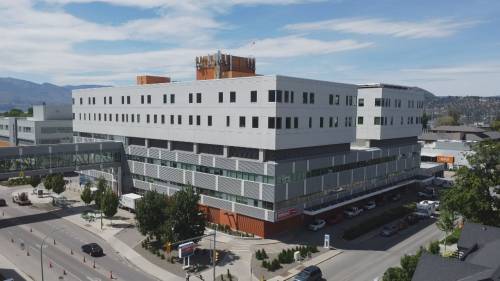The corridors of Kelowna General Hospital echo with growing frustration as patients, healthcare workers, and community members intensify calls for sweeping reforms amid reports of overcrowding, staff burnout, and compromised care quality.
“We’ve reached a breaking point,” says Janet Morrison, a nurse with 15 years of experience at KGH. “Staff are stretched beyond reasonable limits, working double shifts while trying to maintain the level of care our patients deserve.”
Recent incidents have thrust the hospital’s challenges into the spotlight, with families reporting extended emergency room wait times exceeding 12 hours in some cases. Last month, an internal hospital report obtained by CO24 News revealed occupancy rates consistently exceeding 120 percent capacity, forcing some patients to receive care in hallways and makeshift treatment areas.
The situation has drawn attention from provincial health authorities. British Columbia Health Minister Adrian Dix acknowledged the challenges during a press conference Tuesday, stating: “We recognize the extraordinary pressure facing Kelowna General and other facilities across the province. Our government has committed an additional $45 million toward immediate relief measures, including recruitment initiatives and expanded infrastructure.”
However, critics argue these measures fall short. The Kelowna Healthcare Advocacy Coalition, formed by concerned community members and healthcare professionals, has presented a comprehensive reform proposal to hospital administration and provincial officials.
“Bandaid solutions won’t address systemic problems,” explains Dr. Michael Chen, coalition spokesperson and former KGH department head. “We need fundamental restructuring of resource allocation, staffing models, and emergency protocols to create sustainable improvements.”
The coalition’s proposal outlines several priorities, including expanded emergency department capacity, increased hiring of specialized nurses, implementation of improved triage protocols, and creation of overflow facilities for non-critical patients during peak periods.
Hospital administration has responded by announcing town hall meetings throughout October to engage with staff and community members. “We’re committed to transparency and collaborative solutions,” says KGH Chief Operating Officer Samantha Wright. “These challenges didn’t develop overnight, and resolving them requires input from everyone involved in patient care.”
The situation at KGH mirrors healthcare challenges facing institutions across Canada, where aging populations, healthcare worker shortages, and pandemic aftereffects have strained provincial systems to their limits. A recent CO24 Business analysis indicates healthcare spending has increased 18% nationwide since 2019, yet staffing levels have only grown by 4%.
For patients like 72-year-old Kelowna resident Thomas Blakely, these statistics represent real-life consequences. “I waited nine hours with chest pain before seeing a doctor,” Blakely recounts. “The staff were doing everything possible, but there simply weren’t enough of them. Something has to change before someone dies waiting.”
Community support for reform continues building momentum through petition drives, public demonstrations, and growing media attention. Local political representatives have pledged to make healthcare reform a central issue in upcoming provincial discussions.
As pressure mounts for meaningful change at Kelowna General Hospital, the fundamental question remains: will this crisis finally catalyze the systemic reforms needed to ensure quality healthcare for all residents, or will short-term solutions merely delay the inevitable reckoning with a system struggling to meet modern healthcare demands?























